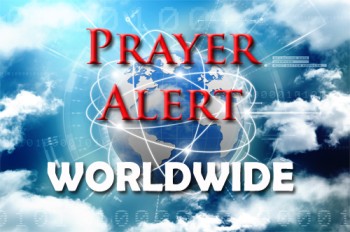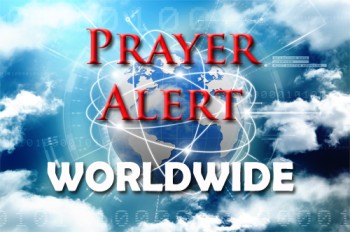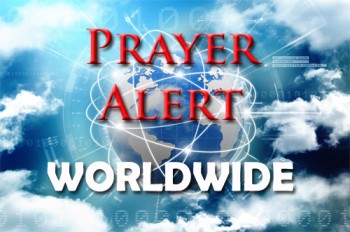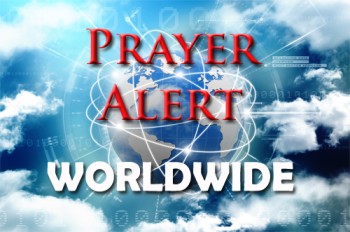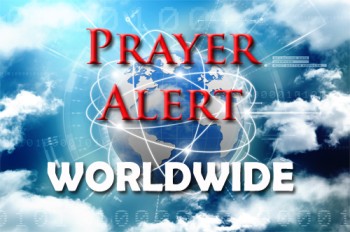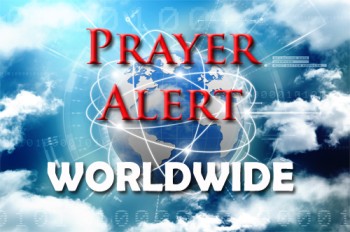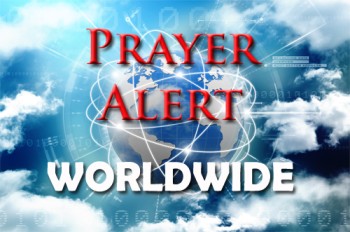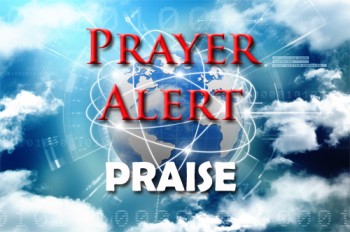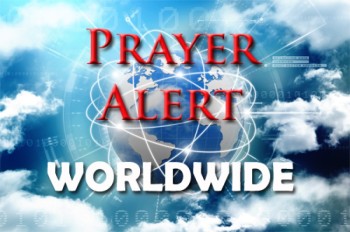Displaying items by tag: Africa
South Africa: danger of declaring war
South Africa’s president says that arresting Vladimir Putin if he attends Johannesburg’s economic summit would be a declaration of war by his country. The August summit brings together Brazil, Russia, India, China and South Africa - developing economies known as BRICS. Putin wants to attend the gathering, but officials are trying to persuade him to stay away to avoid legal and diplomatic fallout because of an international arrest warrant for his alleged war crimes while invading Ukraine. As a signatory to the Rome statute which established the arrest warrant, South Africa would be obligated to arrest Putin if he visits the African nation. President Ramaphosa recently joined a peace mission to Kyiv and Moscow to negotiate ending the war. He does not want to start another war. In an action before the High Court in Pretoria, South Africa’s opposition party has tried to compel the government to pledge to arrest Putin.
Zimbabwe: cholera outbreak
The word cholera doesn’t strike much fear in countries with vaccines and clean water. However a Zimbabwe cholera outbreak is serious, often killing within hours. Cholera is a bacterial disease contracted by ingesting contaminated water or food. It is prevalent in places with poor sanitation, unclean water, and inadequate hygiene. Symptoms of acute watery diarrhoea, vomiting and leg cramps appear within two or three days of infection, leading to severe dehydration and shock. Unless fluids are replaced quickly, death occurs within hours. In the week beginning 9 July there has been a spike in cases and a spread of outbreaks in known hotspot areas in Harare Province. Robust response measures, particularly for strengthening surveillance, risk communication, case management, and provision of clean water, sanitation, and hygiene services are urgently needed to control the outbreaks On 28 June 3,000+ cases were reported: updated totals are not currently available.
Egypt: murdered because he was a Christian
A young architect in Egypt was tragically murdered on a building site by a colleague in a bulldozer who later told police, ‘I hate Christians; I killed him because he is a Christian.’ After confessing to Fadi’s murder, Mohammed spent four days in prison before being sent to a mental health hospital for treatment. It is unclear to what extent, if at all, psychological issues contributed to this attack. They are often cited by Muslim extremists to explain their attacks against Christians to avoid prosecution - and it works. Like so many families who’ve been affected by persecution in Egypt, there is no guarantee that Fadi’s family will receive justice from the legal system. Despite this uncertainty and the anguish they are in, they have already decided to forgive Mohammed. This incident reminds us how for many Christians the workplace is not safe - either because of overt attacks like this one or more subtle forms of discrimination.
Nigeria: Christians barbarically murdered
90% of all Christians killed worldwide are in Nigeria. Christians live in a constant state of terror, fearing abduction, torture, and murder by radical Islamic jihadists. Boko Haram and Nigeria’s arm of IS slaughter innocent Christians and burn down Christian churches. One survivor stated, ‘I saw bodies in the street: children and women, some were crying for help.’ Some attackers even pose as preachers to slaughter Christian congregants and kidnap Christian children. Fulani herdsmen are also increasing their barbaric persecution of Nigerian Christians. They have slaughtered thousands: it's genocide. The American Centre for Law and Justice is launching a multi-pronged legal advocacy campaign, urging the UN, USA, and world leaders to take urgent action. Its global offices are expanding their most extensive campaign for the persecuted Church ever undertaken, filing lawsuits, advocacy letters, and legal submissions to the UN - saying, ‘Together we can protect Christians in Nigeria from the growing scourge of jihadist persecution’.
South Sudan: refugee camp’s conflict
People escaping the fighting in Khartoum are creating a crisis in South Sudan. Roughly 50,000 Sudanese refugees have fled to South Sudan. However, putting people from different tribal groups in the same refugee camp creates fear and anxiety, with tensions boiling over. In many of these regions, there is much hostility. Even in the city of Malakal 13 people were killed in a conflict in the United Nations refugee camp. Orphanages are being evacuated and children displaced. For refugee children, going from fighting in their home country to fighting in the refugee camp is frightening. Child Evangelism Fellowship has been serving refugee camps in South Sudan since 2016. Its staff now want to reach this new wave of Sudanese refugees and children pouring in from the northern border. It has a burden to bring relief, comfort, and the gospel. However, some of South Sudan’s northern cities are difficult and even dangerous to get into.
African leaders say Ukraine war must end
South Africa's president Cyril Ramaphosa has told Vladimir Putin the war in Ukraine must end. His remarks came when he met Mr Putin on 17 June as part of an African peace mission of seven African countries. President Volodymyr Zelensky had already told the delegation that he would not enter talks with Russia while they occupied Ukrainian land. Mr Ramaphosa also called for both parties to return their prisoners of war, and said children removed by Russia should be returned home. As the African delegation called for the return of children to their families, Putin interrupted their speech, claiming, ‘Children are sacred. We moved them out of the conflict zone, saving their lives and health’. Mr Ramaphosa also warned Mr Putin of the impact of the war on Africa and said it should be settled by diplomacy.
Africa: rivers of Christian blood
The 16 June murder of 45 Christian schoolchildren is the latest anti-Christian atrocity committed by ADF. They were hacked to death, shot, or burned alive. Others were abducted. ADF pledges loyalty to IS and has slaughtered hundreds of Christians in north-eastern DRC. Nigeria’s Middle Belt has seen over 1,500 Christians killed in the last 18 months. In May IS released a video of 20 Nigerian Christians being murdered. Islamic State Mozambique (ISM) have beheaded thousands of Christians on social media. ISM celebrates building its Islamic province ‘on heaps of Christian corpses and rivers of their blood’. A Middle East Media Research Institute report stated that IS and al-Qaeda, having been beaten back from Middle East strongholds, have found new pastures for genocide in Africa. They follow the same tactics of mass killings, execution-style beheadings, and burning churches, celebrated in slickly produced publications and social media campaigns designed to entice the next generation of bloodthirsty Islamist terrorists.
Libya: progress towards democratic elections?
Key issues remain strongly contested despite draft laws agreed in Morocco by Libya’s rival legislative bodies. Libya has been fraught with conflict for more than a decade since Muammar Gaddafi’s removal during the Arab Spring, prompting rival factions to compete for power. By 2015 two legislative bodies had formed and struggles over Libya’s rule and wealth have continued since then. A 6+6 committee drawn from Libya’s two rival legislative bodies – the Tobruk-based House of Representatives (HoR) and the Tripoli-based High Council of State (HCS) – agreed on 6 June on draft laws for presidential and parliamentary elections, inching forward in the country’s current political crisis. The UN, while welcoming progress, says key issues remain strongly contested, blocking the road to a final settlement and harbouring the potential to spark a new crisis in the divided country. The democratic process needs to reach an agreement on the eligibility criteria for presidential candidates.
Two more ‘Chibok girls’ rescued
Hauwa Maltha and Esther Marcus were abducted by Boko Haram in April 2014 and rescued on 21 April 2023. They were forced to marry Boko Haram fighters three times as one soldier after another was killed in the fighting. Hauwa had 4 children and has since given birth to a 5th. Esther had a one-year-old baby when she was found. Give thanks for the rescue of Hauwa and Esther. Pray that both young women will recover from their lengthy, traumatic ordeal, also asking for the Lord’s blessing upon their young children and that He will remove the scars from their harrowing start to life. Ask the Lord to administer His healing touch on these families as they seek to rebuild their lives by trusting in Him.
Niger: Believers respond to persecution
In the city of Maradi, a growing number of Fulani men and women are encountering Jesus, but it’s enraging Fulani Muslims, who use different tactics to persecute Christians. In response, Open Doors local partners ran persecution survival training for 120 new believers. ‘Thanks to this training, my eyes are opened to how to respond to persecution,’ says Lydia. ‘I now understand that these are the footsteps that Jesus Christ left for all those who believe in Him. Persecution is inevitable, but we must stand strong, and we should pray for our persecutors.’ ‘I am blessed with the Word of God; I have strategies to overcome the persecution,’ adds Zeinabou. ‘I never knew anything about persecution response, but now my eyes are open - I am more than victorious, I must overcome persecution because Jesus is with me, and He will never let me down.’
